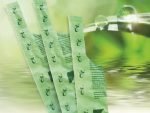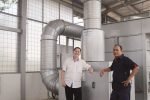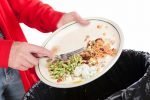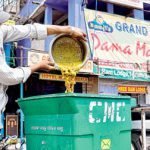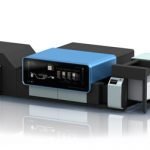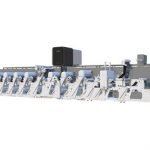waste - search results
Compostable waste bags in Germany
Automated waste collection makes for clean and sustainable production
Bukit Muria Jaya is the largest packaging company in Indonesia that prints and converts more than 24,000 tons of paperboard each year in its plants in Kudus and Karawang for the tobacco, food and pharmaceutical industries.
In India, 6,000 tons of plastic waste lies uncollected every day
Last year at the PDIT Conference in Mumbai, packaging designer Rob Vermeulen ended his presentation with a photography of the plastic strewn beach at Juhu outside his hotel.
Focus on reducing food waste and finding solutions
Food security and food safety is now a major area of focus for stakeholders across the world. In the UK, Queen’s University Belfast’s Institute for Global Food Security will play a key role in a new leading partnership which will tackle the global challenge of feeding the world’s growing population, as well as enabling the university to access up to €400 million in funding. The Institute has secured the partnership through the European Institute of Innovation and Technology (EIT).
Save Food movement can tackle food waste on a bigger scale
Save Food campaign was initiated with the goal to fight global food wastage and loss. The campaign is a joint initiative of the Food and Agriculture Organization (FAO) of United Nations Environment Programme (UNEP), Messe Dusseldorf and Interpack, a leading global trade fair for packaging and processes. The initiative aims at encouraging dialogue between industry, research, politics and civil society on food losses through a global alliance of all stakeholders. Save Food regularly brings together stakeholders involved in the food supply chain in conferences and projects it is involved in, where it assists them in formulating effective strategies. It is a macro-level enabler with tremendous networking reach that micro-level agencies on the ground can leverage.
Sustainable solutions for managing label waste
Responsibly managing waste and ensuring zero waste to landfill has been a daunting challenge for the labeling industry. Coming up with a solution is UPM Raflatac, which is partnering with Labelexpo Americas (held from 13 to 15 September 2016 in Rosemont, Illinois) to provide a solution for exhibiting label converters to responsibly dispose of their label, matrix and liner waste and give it a new life in the form of energy. Attendees are invited to visit UPM Raflatac’s waste collection feature area at Stand 1245, where they can find more information and talk to company experts.
Banyan Nation – a case study for startups in plastic waste recycling
When two Indian professionals from Silicon Valley in California, United States, decided to return home to set up an enterprise of their own, it was not the usual tech firm offering solutions to megabuck B2B enterprises that they had in mind. Instead, they launched Banyan Nation in 2013, an organization dedicated to recycling plastic waste and churning out top grade and more durable plastic pallets. Selling top grade recycled plastic pallets wasn’t their only objective; rather, setting up a sustainable waste plastic recycling system was what they wanted to do and they succeeded in doing so with a lot of value for the Indian plastic recycling industry.
Where, what and how is food produced and wasted in India?
An IppStar Research project again attempts to look at an issue with facts instead of the erratic cut and paste numbers and information available on the internet. We believe that there is no short cut to investing in real primary research – face-to-face interviews with farmers, food traders, food processors, retailers and consumers.
Will unveil a zero-waste metallization technology
Landa’s lineup of offset quality Nanographic printing presses at drupa will include sheetfed presses running at 13,000 B1 sheets an hour as well as one meter-wide (41 inches) web presses printing on plastic packaging films. The company will also unveil Landa Nano-Metallography, a zero-waste metallization technology that will halve the cost of metallized printing compared to foil transfer processes.
Offers zero-waste metallization graphics at half the cost of foil
Landa has come up with a new nanotechnology for the graphics metallization market. The company’s new Nano-Metallography technology offers zero-waste metallization, reducing costs by more than half compared to foil. Landa’s quicker and simpler process will streamline the production of metallized print and improve customer profitability. Landa Nano-Metallography is operable with the full spectrum of conventional printing technologies, including narrow-web flexo, offset and screen for the production of labels, sheetfed offset for folding carton and commercial printing, web-offset for publishing and wide-web flexo and gravure for flexible packaging.



